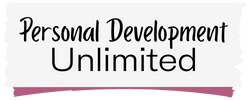Continuous learning is essential for personal growth, enabling individuals to expand their knowledge, skills, creativity, and experiences. With the increasing pace of technological and societal change, committing to lifelong learning and embracing new ideas and ways of thinking has become more important.
Education
Whether through formal education and training, reading books and articles, or pursuing new hobbies and interests, continuous learning offers many benefits that positively impact different aspects of life. This includes enhancing creativity, improving job performance and productivity, and expanding our horizons, among many other advantages.
Benefits of Continuous Learning and Personal Growth
Acquiring new knowledge and using new skills is one of the primary benefits of a continuous learning culture. Learning new things expands our understanding of the world, provides opportunities to challenge ourselves and develop new interests, and keeps our minds active and engaged.
Learning process
Whether learning a new language, technology, or hobby, acquiring new knowledge and using new skills opens doors to new experiences and helps us grow. Moreover, continuous learning helps us stay relevant in a rapidly and constantly changing world and easily adapt to new situations.
Enhancing Creativity
Continuous learning will enhance creativity by exposing us to new perspectives and ideas, expanding our horizons to this ever-changing world, and inspiring us to think outside the box. By acquiring new knowledge and skills, we can connect seemingly unrelated ideas and develop innovative solutions to problems.

Continuous Learning
Learning new things and spending time also stimulates our imagination and encourages us to explore our creativity, leading to the development of new ideas and concepts. Continuous, lifelong learning and development can also help us break out of our comfort zones and challenge our assumptions, allowing us to approach problems from new angles and develop fresh approaches.
Benefits of Continuous Learning on Professional Growth
Continuous learning profoundly impacts professional growth, personal Performance, and career development. By acquiring new skills and knowledge, we can increase our job performance and productivity, making us more valuable to our employers.
Professional Development
Moreover, continuous learning can make us more competitive in the job market, enhancing our employability and opening doors to new career advancement opportunities. It helps us stay up-to-date with the latest industry trends and advancements, keeping us relevant and ensuring that we are well-positioned for success.
Enhancing Job Performance: New Skills
Continuous learning can enhance job performance and productivity by equipping us with new skills and knowledge to apply to our work. Learning new techniques, methods, and technologies can streamline our work processes, improve Performance, reduce errors, and complete tasks more efficiently.

Keeping up
continuous learning can also help us stay up-to-date with the latest trends and best practices in our industry, ensuring that we provide the best possible service to our client’s current employees or customers.
Enchanting our Performance
By enhancing our job performance and productivity to support employee career development and a supportive work environment, supportive learning environment, continuous learning practices, training, and support ongoing training and learning environment, we become more valuable to our employers and encourage employees to stay engaged, which can lead to promotions, raises, and other career growth and advancement opportunities.
Methods of Continuous Learning
Formal education and training provide a structured approach to learning and development, offering a comprehensive curriculum, expert guidance, and recognized credentials. Formal education typically takes place in an academic setting, such as a college or university, and leads to a degree or diploma upon completion of a formal course.
Formal Learning and Development
On the other hand, formal training is often job-specific and may involve on-the-job training, apprenticeships, or vocational training programs.
Formal education and training can offer a range of benefits, such as providing a strong foundation of knowledge and skills, providing access, preparing individuals for specialized roles, and increasing their employability.
Formal Education
Formal education and training can help individuals develop critical thinking and problem-solving skills, enhance their creativity, and foster a love of learning that can extend throughout their lives.
Reading books, articles, relevant podcasts, and blogs
Reading books, articles, and blogs is a great way to learn and expand our knowledge base continuously. Reading provides access to various perspectives, ideas, and new processes of acquiring knowledge and information, a very continual process, and continuous process that allows us to broaden our understanding of the world and explore new concepts.
Improving critical thinking
Moreover, reading can improve our critical thinking and analytical skills and enhance our communication and writing abilities. Finally, by reading widely and regularly, we can expose ourselves to new ideas, challenge our assumptions, and expand our horizons while enjoying a good book or article.
Overcoming Challenges in Continuous Learning
Time management
Time management is a critical skill for continuous learning and personal growth. By effectively managing our time well, we can prioritize our professional learning and goals, make time for new activities, and avoid burnout.
Time management
Time management involves setting clear goals, prioritizing tasks, and scheduling our time to maximize productivity and minimize distractions. It can help us make the most of our time, allowing us to balance our personal and professional commitments while making room for continuous learning activities and personal growth.

Effective time management can also reduce stress, increase focus, and enhance our overall well-being, making it essential to a fulfilling and successful life. By prioritizing continuous learning activities and making time for personal growth, we can achieve our full potential and lead more fulfilling life.
Procrastination
Procrastination is a common obstacle to continuous personal and professional development, learning, and personal growth. It refers to the tendency to delay or put off tasks, often leading to missed opportunities and unfulfilled potential.
Why do we procrastinate?
Procrastination can arise from various factors, including fear of failure, lack of motivation, and poor time management skills. It can be a challenging habit to break, but some strategies can help. For example, breaking tasks into smaller, more manageable chunks can make them feel less overwhelming while setting clear goals and deadlines can help increase motivation and accountability.
Mindfulness
Additionally, practicing mindfulness and self-compassion can help us recognize and overcome negative thought patterns contributing to procrastination. Taking proactive steps to overcome procrastination can remove a significant barrier to continuous learning, professional and business goals, professional and personal development, and growth and help us achieve our full potential.
Overcoming fear and discomfort
Overcoming fear and discomfort with new subjects or skills is essential for continuous learning, personal and career development, and growth. Fear and discomfort can arise when we encounter new ideas or skills that challenge our existing beliefs or require us to step outside our comfort zones.

Recognizing Your Discomfort
However, it’s essential to recognize that discomfort and fear are normal and natural reactions to change and that they can be overcome with practice and persistence.
One strategy is to gradually break the formal learning process into smaller, more manageable steps, focusing on gradually building competent employees’ knowledge and skill sets,l the employee knowledge and skill sets themselves, and confidence that is their own pace of constant learning and supporting continuous learning.
Lifelong Learning
Additionally, we are seeking a supportive and continued learning environment, learning where communities, mentors, or coaches can provide guidance, extra training, full support, and encouragement as we navigate new learning challenges. By embracing discomfort and pushing through fear, we can develop resilience, expand our horizons, and achieve our full potential.
Conclusion
Continuous learning is essential for personal growth and ongoing development and offers many benefits that positively impact various aspects of life. By acquiring new knowledge and skills to increase knowledge and enhancing creativity,
Improving Performance
improving job performance and productivity, and personal life, and expanding our horizons for future opportunities, continuous learning examples, we can achieve our full potential and lead a more fulfilling life.

Overcoming fear
Overcoming fear and discomfort, supporting the continuous learning process, and breaking down tasks into smaller steps can help us overcome procrastination and achieve continuous leag and objectives.
In today’s rapidly changing world, the continual learning processing of each new process has become more critical than With this mindset, weer. We can stay relevant and adapt our time to new challenges and opportunities with an embrace continuous learning mindset.

Kevin Krømcke
About the author, Kevin is a professional chef with close to 5 years of experience in kitchen hotelsin Norway in his bloghttps://kevinkr.comhe seeks to educate and guide people through hisrealms of interests.
Comments
0 comments



